Best Universities for Bioinformatics and Computational biology in the World
Updated: February 29, 2024
- Art & Design
- Computer Science
- Engineering
- Environmental Science
- Liberal Arts & Social Sciences
- Mathematics
Below is a list of best universities in the World ranked based on their research performance in Bioinformatics and Computational biology. A graph of 122M citations received by 3.3M academic papers made by 3,258 universities in the World was used to calculate publications' ratings, which then were adjusted for release dates and added to final scores.
We don't distinguish between undergraduate and graduate programs nor do we adjust for current majors offered. You can find information about granted degrees on a university page but always double-check with the university website.

1. Harvard University
For Bioinformatics and Computational biology

2. Stanford University

3. Johns Hopkins University

4. University of California - San Francisco

5. Massachusetts Institute of Technology

6. University of Washington - Seattle

7. University of California-San Diego

8. University of Oxford

9. University of Michigan - Ann Arbor

10. University of Toronto

11. Yale University

12. University College London

13. University of Cambridge

14. University of Pennsylvania

15. University of California - Los Angeles

16. Cornell University

17. University of California - Berkeley

18. Washington University in St Louis

19. University of Texas MD Anderson Cancer Center

20. University of North Carolina at Chapel Hill

21. University of Wisconsin - Madison

22. Columbia University

23. Heidelberg University - Germany

24. Baylor College of Medicine

25. Imperial College London

26. University of Chicago

27. Karolinska Institute
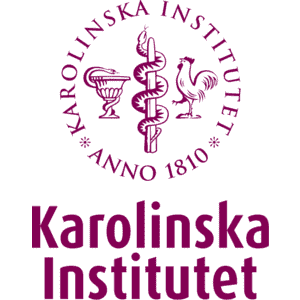
28. University of Texas Southwestern Medical Center

29. Ohio State University

30. University of Queensland

31. University of Copenhagen

32. University of Minnesota - Twin Cities

33. University of Pittsburgh

34. Duke University

35. University of British Columbia

36. University of Manchester

37. University of California - Davis

38. Kyoto University

39. University of Melbourne

40. Boston University

41. New York University

42. Northwestern University

43. University of Tokyo

44. University of Alberta

45. University of Southern California

46. University of Edinburgh

47. Vanderbilt University

48. Icahn School of Medicine at Mount Sinai
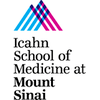
49. University of Florida

50. Pennsylvania State University

51. University of Illinois at Urbana - Champaign

52. Emory University

53. Catholic University of Leuven

54. Peking University

55. University of Utah

56. McGill University

57. Swiss Federal Institute of Technology Zurich

58. California Institute of Technology
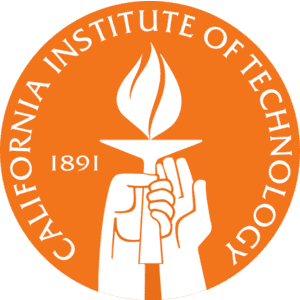
59. Technical University of Munich

60. Mayo Clinic College of Medicine and Science
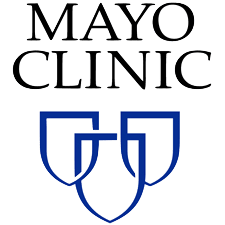
61. Rockefeller University

62. University of Sydney

63. National University of Singapore

64. Uppsala University

65. Weizmann Institute of Science

66. University of Zurich
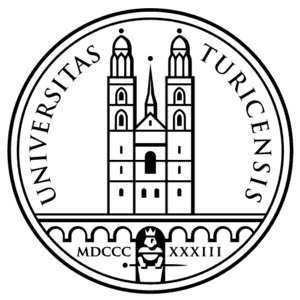
67. Pierre and Marie Curie University

68. King's College London

69. Peking Union Medical College

70. Monash University

71. Radboud University

72. Charite - Medical University of Berlin

73. Rutgers University - New Brunswick

74. Princeton University
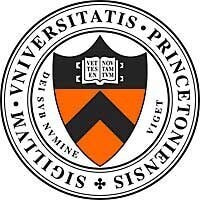
75. University of Virginia

76. Seoul National University

77. Shanghai Jiao Tong University

78. Case Western Reserve University

79. University of Glasgow

80. University of Munich

81. University of Helsinki

82. Sun Yat - Sen University

83. University of Colorado Boulder

84. University of Arizona

85. University of Texas at Austin

86. University of Alabama at Birmingham

87. McMaster University

88. Tel Aviv University

89. Utrecht University

90. Indiana University - Purdue University - Indianapolis

91. Ghent University

92. Zhejiang University

93. University of Massachusetts Medical School Worcester

94. University of Maryland, Baltimore


95. Technical University of Denmark

96. University of Colorado Denver/Anschutz Medical Campus

97. University of California - Irvine

98. University of Groningen

99. University of Bristol

100. University of Amsterdam

Biology subfields in the World
Best Genetics Programs
Ranked in 2022, part of Best Science Schools
Genetics and genomics courses examine heredity and DNA
Genetics and genomics courses examine heredity and DNA and, in bioinformatics, computer programs are used to analyze this genetic information. These are the best science schools for genetics / genomics / bioinformatics. Read the methodology »
- Clear Filters
Explore your training options in 10 minutes Get Started
- Graduate Stories
- Partner Spotlights
- Bootcamp Prep
- Bootcamp Admissions
- University Bootcamps
- Coding Tools
- Software Engineering
- Web Development
- Data Science
- Tech Guides
- Tech Resources
- Career Advice
- Online Learning
- Internships
- Apprenticeships
- Tech Salaries
- Associate Degree
- Bachelor's Degree
- Master's Degree
- University Admissions
- Best Schools
- Certifications
- Bootcamp Financing
- Higher Ed Financing
- Scholarships
- Financial Aid
- Best Coding Bootcamps
- Best Online Bootcamps
- Best Web Design Bootcamps
- Best Data Science Bootcamps
- Best Technology Sales Bootcamps
- Best Data Analytics Bootcamps
- Best Cybersecurity Bootcamps
- Best Digital Marketing Bootcamps
- Los Angeles
- San Francisco
- Browse All Locations
- Digital Marketing
- Machine Learning
- See All Subjects
- Bootcamps 101
- Full-Stack Development
- Career Changes
- View all Career Discussions
- Mobile App Development
- Cybersecurity
- Product Management
- UX/UI Design
- What is a Coding Bootcamp?
- Are Coding Bootcamps Worth It?
- How to Choose a Coding Bootcamp
- Best Online Coding Bootcamps and Courses
- Best Free Bootcamps and Coding Training
- Coding Bootcamp vs. Community College
- Coding Bootcamp vs. Self-Learning
- Bootcamps vs. Certifications: Compared
- What Is a Coding Bootcamp Job Guarantee?
- How to Pay for Coding Bootcamp
- Ultimate Guide to Coding Bootcamp Loans
- Best Coding Bootcamp Scholarships and Grants
- Education Stipends for Coding Bootcamps
- Get Your Coding Bootcamp Sponsored by Your Employer
- GI Bill and Coding Bootcamps
- Tech Intevriews
- Our Enterprise Solution
- Connect With Us
- Publication
- Reskill America
- Partner With Us
- Resource Center
- Bachelor’s Degree
- Master’s Degree
Best Doctorates in Bioinformatics: Top PhD Programs, Career Paths, and Salaries
Acquiring a PhD in Bioinformatics allows you to enjoy a smooth career journey in this interdisciplinary field. A PhD makes you stand out as an expert in the field which helps you secure high-paying positions. The best PhDs in Bioinformatics degree programs at top private and public universities can help you become a leading professional in the field.
If you’re wondering how to begin pursuing a bioinformatics PhD, this guide will cover 10 of the best academic programs available, as well as the funding opportunities and admissions process of each. We’ll also explore exciting bioinformatics jobs and the top PhD in Bioinformatics salary opportunities that await graduates.
Find your bootcamp match
What is a phd in bioinformatics.
A PhD, or Doctor of Philosophy in Bioinformatics refers to an interdisciplinary, post-graduate program that integrates the real-world experience of research and applying computer technology to the analysis and management of biological data. PhD in Bioinformatics degrees teach students to organize data from multiple experiment databases, create new algorithms, and use software and mathematical modeling to interpret biological information.
Advanced bioinformatics PhD students gain the knowledge, computational skills, and scientific skills necessary to apply the latest technology to biological data. In addition, they leverage different techniques to find solutions to diseases.
How to Get Into a Bioinformatics PhD Program: Admission Requirements
The admission requirements for a PhD in Bioinformatics program include a 3.0 GPA, letters of recommendation, a personal statement, a current resume, official transcripts, and a master’s degree in a relevant field. Some universities will require GRE exam scores and approval by the department. Certain universities will accept students with a bachelor’s degree in a relevant field.
All international and English as a second language-speaking (ESL) students will need to submit proof of English proficiency in the form of the Test of English as a Foreign Language (TOEFL) exam scores or an equivalent proficiency exam. Admission processes will vary by school, so you should carefully examine the school’s requirements before submitting your application.
PhD in Bioinformatics Admission Requirements
- 3.0 minimum GPA
- Letters of recommendation
- Relevant master’s or bachelor’s degree
- Official transcripts
- GRE exam scores, depending on school
- Updated resume
- TOEFL exam or equivalent for international and ESL students
Bioinformatics PhD Acceptance Rates: How Hard Is It to Get Into a PhD Program in Bioinformatics?
It can be very hard to get into a PhD program in Bioinformatics because it is a highly specialized field that often requires real-world experience. Depending on the university you apply to, you will encounter different acceptance rates. You can learn how competitive the program is by searching for acceptance or admission rates on the program’s website.
Nevertheless, if you’re an outstanding student who achieved exceptional grades in a relevant master’s or bachelor’s program, you can be sure it will be easy to find an opportunity for acceptance in most universities.
How to Get Into the Best Universities
[query_class_embed] how-to-get-into-*school
Best PhDs in Bioinformatics: In Brief
Best universities for bioinformatics phds: where to get a phd in bioinformatics.
The best universities for bioinformatics PhDs include the University of Utah, John Hopkins University, the University of California, Cornell University, Columbia University, and the University of Miami. If you’re looking for a top university with graduate bioinformatics degree programs, read below for details on each of the best programs available.
Colorado State University is a public academic institution founded in 1870. Located just under two hours from Denver, CSU has eight colleges that provide numerous graduate programs to over 3,500 graduate and doctoral students.
PhD in Biological Science
Students of this biological science program will learn basic and applied biological research and have the choice of specializing in bioinformatics. To complete this 72-credit program, you will need the BZ 779 Dissertation, which has a minimum of 32 credits. Prospective students should contact the department advising faculty to match with an advisor for successful admission.
PhD in Biological Science Overview
- Program Length : 5 years
- Acceptance Rate : N/A
- Tuition and Fees : $601.90/credit (in state); $1,475.80/credit (out of state)
- PhD Funding Opportunities : Graduate assistantships, Marshall and Rhodes grants, and the Martin Luther King, Jr. Graduate Scholarship
PhD in Biological Science Admission Requirements
- Master's or bachelor’s degree in a relevant field
- Three letters of recommendation
- Statement of purpose
- Approval by the admission board
Founded in 1754 by King George II, Columbia University was initially known as King's College. It is the oldest higher learning institute in New York and the fifth oldest in the US. The private university offers numerous PhD programs , including programs in art history, astronomy, chemical physics, and biological sciences.
PhD in Biomedical Informatics
Columbia University's bioinformatics PhD program concentrates on courses such as clinical informatics, bioinformatics, public health informatics, and clinical research informatics. The degree requirements include 60 credit units in coursework, two specialization courses, an ethics unit, a research seminar, and two classes of teaching assistant work.
- Acceptance Rate : 5 - 7%
- Tuition and Fees : $25,248/semester
- PhD Funding Opportunities : Graduate assistantships, fellowships, and National Library of Medicine funding
- GRE exam scores
- Bachelor's or master’s degree in a relevant field
- Writing supplement
- Personal statement
Cornell University is a private research university founded in 1865 by Ezra Cornell and Andrew Dickinson White. Cornell offers numerous fully-funded PhD degrees, including programs in management, animal science, applied mathematics, molecular and cell biology, and astronomy and space sciences.
PhD in Computational Biology
This PhD in Computational Biology program blends mathematics, technology, and biology to train students to produce computational models of biological and genomic data. Students of this interdisciplinary program are taught and advised by faculty from 16 different fields and explore topics such as neuroscience, protein structure and databases, and biomechanics.
PhD in Computational Biology Overview
- Program Length : 5 - 6 years
- Acceptance Rate : 5 - 10%
- Tuition and Fees : $20,800/year
- PhD Funding Opportunities : Graduate assistantships, research assistantships, and fellowships
PhD in Computational Biology Admission Requirements
- Official transcripts
- Master’s degree
- Two to three letters of recommendation
- GRE exam scores (optional but encouraged)
- Application fee
John Hopkins University is a private research university named after its initial benefactor, John Hopkins. Founded in 1876, it was the first research university to be established in the United States. Some of the most renowned and highly-ranked doctoral programs at John Hopkins include medicine, biological sciences, biostatistics, and public health.
PhD in Pathobiology
This PhD in Pathobiology program provides an active learning, evidence-based approach to pathobiology. Enrolled students are fully funded, with average costs of over $98,000 per student covered by the university. At the end of the program, students will be prepared for academic, teaching, research, and biotechnology positions to find solutions to various diseases.
PhD in Pathobiology Overview
- Program Length : 5.5 years
- Acceptance Rate : 9%
- Tuition and Fees : No fees
- PhD Funding Opportunities : Fully funded by Johns Hopkins with a $34,910 yearly stipend
PhD in Pathobiology Admission Requirements
- Current resume
- Bachelor’s or master’s degree
- GRE scores (optional)
Northern Arizona University is a public research university founded in 1899. NAU offers over 100 doctoral programs and enrolls over 4,500 graduate students. The school is ranked 57th on the list of the most innovative schools in the United States by US News & World Report.
PhD in Informatics and Computing
PhD students enrolled in this program have the choice of specializing in Bioengineering Informatics, Cyber and Software Systems, Ecological and Environmental Informatics, or Health and Bioinformatics. Degree requirements include research, preparing and defending a dissertation, comprehensive exams, and completing 60 to 109 credit units of graduate courses.
PhD in Informatics Overview
- Tuition and Fees : $12,250/year (in state); $28,240/year (out of state)
- PhD Funding Opportunities : CEIAS Scholarship, VMWare Scholarship, employee tuition reduction, and graduate assistantships and tuition waivers
PhD in Informatics Admission Requirements
- Personal statement or essay
- Relevant expertise in informatics
The University of Arizona is a public research university founded in 1885 by the Arizona Territorial Legislature. It was the first higher learning institution in the state. As a member of the Association of American Universities and the Universities Research Association, UA offers numerous top-quality doctoral degree programs. Top PhD programs include audiology, education, natural sciences, nursing, and musical arts.
PhD in Biostatistics
UA's biostatistics PhD program covers topics such as bioinstrumentation, molecular biophysics, interfacial biosystems engineering, polymeric science and engineering, and neural and neuromuscular prostheses. To get a PhD degree in this specialization, students must complete 74 credits of coursework, a dissertation, and qualifying examinations.
PhD in Biostatistics Overview
- Program Length : 6 to 7 years
- Acceptance Rate : 81.82%
- Tuition : $13,400/year (in state); $33,600/year (out of state)
- PhD Funding Opportunities : Graduate scholarships and assistantships, Named scholarships, and the Western Regional Graduate Program
PhD in Biostatistics Admission Requirements
- Master’s Degree in Statistics, Biostatistics, or a relevant field
- 3.2 minimum GPA
- Statement of purpose, writing sample, and a mission and values statement
- Documented experience in computer programming (C++, Java, Python, or R programming languages) highly recommended
The University of California, Los Angeles (UCLA) was founded in 1882 as a teacher's college. Today, UCLA provides over 120 graduate programs to 6,000 newly admitted graduate students per year. Numerous graduate programs at UCLA are repeatedly ranked among the top programs in the world.
PhD in Bioinformatics
Students in this program will enjoy research, training, and collaboration opportunities with some of the most expert faculty and professionals in the world of bioinformatics. Students have access to one of the largest computer grids in the US to explore topics like human genome evolution, population genetics, and computational methods to analyze epigenomic data.
- Acceptance Rate : 28%
- Tuition and Fees : $17,756/year (in state); $32,858/year (out of state)
- PhD Funding Opportunities : Graduate assistantships, training grants, GEM Fellowship, UC HBCU Initiative, Dissertation Year Fellowship, and graduate student researcher positions
- Current Resume
- GRE exam scores (optional)
The University of Ilinois at Chicago was established in 1965 and enrolls over 33,000 students. Located on the West Side of Chicago, UIC is Chicago’s only public research university and is recognized for its cultural diversity. UIC’s graduate school departments offer 61 different doctoral programs to students in a wide range of fields.
Core topics of this 108-credit program include machine learning, the principles of bioinformatics, and statistical mechanics in biological systems. Students of this program will complete and defend a dissertation, pass preliminary and qualifying exams, and complete at least two research seminars before graduation to obtain the PhD.

"Career Karma entered my life when I needed it most and quickly helped me match with a bootcamp. Two months after graduating, I found my dream job that aligned with my values and goals in life!"
Venus, Software Engineer at Rockbot
PhD in Bioinformatics Overview
- Program Length : N/A
- Tuition and Fees : $5,935/semester (in state); $12,369/semester (out of state)
- PhD Funding Opportunities : Teaching assistantships, research assistantships, tuition waivers, and fellowships
- Bachelor’s or Master’s Degree in Physics, Mathematics, Science, or a related field
- Personal Statement
The University of Miami is a private research university established in South Florida in 1925. The university enrolls over 17,000 students in over 12 schools and colleges. It is known for its extensive undergraduate and doctoral programs in marine science, psychology, education, engineering, and medicine.
PhD in Biomedical Engineering
The University of Miami takes biomedical engineering PhD students through key topics such as neurophysiology, cellular and molecular biology, and anatomy. Students of this 60-credit program are required to complete and defend a dissertation, pass oral qualifying exams, and publish at least two pieces of research. Graduates will be prepared for careers in academic or independent research in biomedical engineering.
PhD in Biomedical Engineering Overview
- Tuition and Fees : $19,917/semester
- PhD Funding Opportunities : UM Fellowship, Maytag Fellowship, and Dean’s Fellowship
PhD in Biomedical Engineering Admission Requirements
- Master's Degree in Biomedical Engineering or highly qualified candidates with a bachelor’s degree in a related scientific field
The University of Utah was founded in 1850 as the University of Deseret. It now hosts over 8,000 graduate students in more than 100 master’s and doctoral programs. The University of Utah has become a leader in the world of biomedical informatics since its program’s founding in 1964.
Students in this program will cover the fundamentals of informatics and explore core coursework topics including translational informatics, grant writing, healthcare informatics, and statistics for biomedicine. The program is fully funded by the university and students will have the option of specializing in an informatics field of choice.
PhD in Biomedical Informatics Overview
- Program Length : 3 to 4 years
- PhD Funding Opportunities : Program fully funded by the University of Utah with a $29,710 yearly stipend
PhD in Biomedical Informatics Admission Requirements
- 3.0 Minimum GPA
- Approval by the department administration standards
Can You Get a PhD in Bioinformatics Online?
Yes, you can get a PhD in Bioinformatics online. Since the research work is computational, you can obtain your doctoral degree remotely as long as you fulfill all of the graduation requirements. However, you may have to apply to universities or colleges outside of your state to access online bioinformatics PhD programs.
Best Online PhD Programs in Bioinformatics
How long does it take to get a phd in bioinformatics.
Generally, it takes four to six years to complete a PhD in Bioinformatics. However, depending on the university and the specialization you pursue, you can spend three to five years completing the program. Certain programs will take more time than others, and online or part-time programs can often take longer to finish than full-time, on-campus programs.
Is a PhD in Bioinformatics Hard?
Yes, earning a PhD in Bioinformatics is hard. Students pursuing this degree must complete intensive coursework, exams, and other requirements such as a dissertation or thesis. Moreover, some departments will demand prior requirements such as computer programming and mathematical skills, which can be challenging to acquire.
It takes a lot of effort to obtain a PhD in Bioinformatics. Nonetheless, the effort is worth it. With hard work and time, obtaining a bioinformatics PhD is feasible.
How Much Does It Cost to Get a PhD in Bioinformatics?
The average tuition for a bioinformatics PhD program is $19,315 per year across all higher education institutions, according to the National Center for Education Statistics.
However, this value varies depending on the university. Some institutions will fund their bioinformatics PhD students completely, while others may ask for higher or lower tuition costs than the stated figures. Attending a private institution is often more expensive than a public institution, and it is best to research the costs and funding opportunities available for both.
How to Pay for a PhD in Bioinformatics: PhD Funding Options
The PhD funding options that students can take advantage of to pay for a PhD in Bioinformatics degree program include scholarships, graduate assistantships, fellowships, and tuition waivers. Some institutions, like the University of Utah and Johns Hopkins University, offer enrolled students fully-funded tuition, a yearly stipend, and health insurance.
Best Online Master’s Degrees
[query_class_embed] online-*subject-masters-degrees
What Is the Difference Between a Bioinformatics Master’s Degree and PhD?
The difference between a bioinformatics master’s degree and a PhD is the content of the curriculum and the number of years required to complete the program. While master’s degree programs typically take around two years, PhDs take an extended period of up to six or seven years.
Bioinformatics master’s degrees will cover foundational concepts, but PhDs focus on advanced knowledge and specialized, applicable skills in the field. Additionally, PhDs offer superior job positions compared to master’s degrees because they are the highest form of educational qualification one can have in a particular field of study.
Master’s vs PhD in Bioinformatics Job Outlook
The employment rate for bioengineers, a profession that typically only requires a bachelor’s or master’s degree, is projected to grow by six percent in the next decade , according to the Bureau of Labor Statistics. This is much lower than the rate of employment growth for bioinformatics scientists, which is expected to increase by 22 percent .
This shows that the demand for PhD degree candidates in the bioinformatics field is higher than that of master’s degree holders. Having a PhD in Bioinformatics makes you the most qualified candidate for most positions and you can be assured of securing numerous lucrative career opportunities.
Difference in Salary for Bioinformatics Master’s vs PhD
A PhD in Bioinformatics graduate earns an average base salary of $116,000 per year, according to PayScale. This does not include the numerous benefits and perks of this position. Moreover, some cities offer higher pay, such as San Francisco, San Diego, and New York.
With a Master’s Degree in Bioinformatics, candidates earn an average annual salary of $83,000. A PhD in Bioinformatics graduate earns almost double the salary of a master’s degree holder.
Related Bioinformatics Degrees
[query_class_embed] https://careerkarma.com/blog/best-bioinformatics-bachelors-degrees/ https://careerkarma.com/blog/best-bioinformatics-masters-degrees/ https://careerkarma.com/blog/bioinformatics/
Why You Should Get a PhD in Bioinformatics
You should get a PhD in Bioinformatics to enjoy the numerous benefits of this qualification. With a PhD, you will become a certified expert in the field. Below are some of top the reasons you should consider pursuing a bioinformatics PhD.
Reasons for Getting a PhD in Bioinformatics
- Career development . A PhD in Bioinformatics is essential to secure senior positions in the field. This doctoral degree proves that you have the relevant knowledge and skills to handle top positions in renowned companies, and gives you an edge over the competition in the job market.
- Academic achievement . Aside from securing a dream job, some people feel most accomplished when achieving their academic goals. You can pursue a PhD in Bioinformatics to improve your skills and intensive knowledge in this scientific field.
- Innovative health projects . The best bioinformatics degree programs will equip you with new knowledge and skills in science, computing, and health. You can utilize these skills to work on groundbreaking projects, such as finding a biological solution or cure to a disease.
- Higher earning potential . A PhD automatically increases a degree holder’s earning potential, and can lead to salaries that are double what they would be with a bachelor’s or master’s degree.
Getting a PhD in Bioinformatics: Bioinformatics PhD Coursework

Getting a PhD in Bioinformatics requires candidates to complete core bioinformatics PhD coursework in mathematics, statistics, computing, and biology. Below are a few of the most common core courses you may see in a bioinformatics PhD program curriculum.
Introduction to Bioinformatics
This course introduces students to the fundamental concepts of bioinformatics. It teaches about the different tools and techniques used in the field and how they are applied. It is typically a combination of theory and practical skills and topics for students to gain hands-on experience applying bioinformatics tools and solutions.
Bioinformatics Resources and Databases
This course involves the study of biological databases, data formats, ontologies, and biological resources. This course helps you learn how to obtain and apply different databases to find solutions in the field.
This course focuses on teaching students how to learn Linux , an operating system that is heavily utilized in the field of bioinformatics. It covers the introduction to Linux, Linux environment, command-line interface, manipulating files and directories, navigating Linux directory structure, and primary Linux commands.
Multiple Sequence Alignment
This course introduces students to multiple sequence alignment theory (MSA), and a protein, DNA, or RNA biological sequence alignment. Students will learn about visualization and assessment of MSA quality, and how to use proper tools for MSA analysis.
Molecular Evolution and Phylogenetics
A course in molecular evolution and phylogenetics focuses on how different species and genes are related. The course will cover introductory and overview methods of molecular evolution and phylogenetic approaches.
Best Master’s Degrees
[query_class_embed] *subject-masters-degrees
How to Get a PhD in Bioinformatics: Doctoral Program Requirements
When undertaking a PhD in Bioinformatics, you’ll have to fulfill all of the doctoral program requirements. Whether you are pursuing a PhD in Informatics and Computing, Information Science, or Pathobiology, below are the typical requirements you’ll need to fulfill to get your degree.
A PhD in Bioinformatics program will state the total credit hours you’ll have to complete to obtain your doctoral degree, as well as any required publication or research work. Programs can have credit requirements from 65 to over 100 credit hours. Many graduate assistantships or fully-funded programs will require students to publish articles in peer-reviewed journals or assist faculty in research.
Like many other degrees, PhD in Bioinformatics programs require multiple comprehension and qualifying exams for students to test whether they've mastered different key concepts in the field. To receive your Doctor of Philosophy degree, you must pass the preliminary and qualifying exams.
As a highly-qualifying program of study, the best universities offering PhD in Bioinformatics degrees usually require a minimum GPA that candidates must maintain. Some programs will not allow candidates to graduate or will suspend funding or assistantships if a certain GPA is not met throughout their studies.
Each bioinformatic PhD program entails certain coursework that students must complete in order to be certified in a specific area. This coursework is typically divided into different units in the curriculum, such as core courses, research and dissertation hours, and elective courses.
Before enrolling in any PhD program, you should research the course curriculum in the school catalog to ensure that the curriculum is a good fit for your interests and career goals.
Perhaps the most vital requirement for a bioinformatics PhD is the thesis or dissertation. A dissertation is a research project where students answer a particular question or solve a problem that is relevant to their field of study.
The dissertation usually has to be orally defended in front of the department, and this allows the faculty to evaluate whether the candidate has acquired the necessary research skills to enable them to find a solution to real-world problems and situations.
Potential Careers With a Bioinformatics Degree
[query_class_embed] how-to-become-a-*profession
PhD in Bioinformatics Salary and Job Outlook
A PhD in Bioinformatics degree increases your qualifications for employment and your earning potential significantly. The job outlook for PhD holders in this field is 22 percent more than the national average for all other occupations. Therefore, you can always find a viable career opportunity in the field, from teaching in a university to industry research.
What Can You Do With a PhD in Bioinformatics?
With a PhD in Bioinformatics, you can join leading experts in many different career paths. You can also enjoy top-paying job opportunities with numerous benefits and exclusive perks to boost your productivity, job satisfaction, and career development. Below are some of the best bioinformatics jobs available to graduates.
Best Jobs with a PhD in Bioinformatics
- Computer and Information Research Scientist
- Postsecondary Teacher
- Bioinformatician
- Senior Research Scientist
- Principal Investigator/Clinical Research
What Is the Average Salary for a PhD in Bioinformatics?
The average PhD in Bioinformatics salary is $116,000 per year , according to PayScale. This value can vary depending on your location and the company you work for. Check out some of the best high-paying bioinformatics jobs below.
Highest-Paying Bioinformatics Jobs for PhD Grads
Best bioinformatics jobs with a doctorate.
The job opportunities for candidates with a PhD in Bioinformatics are endless. Below you’ll find information regarding job duties, job outlook, and annual salary information for some of the best jobs available in the field of bioinformatics.
Computer and information research scientists use their analytical and statistics skills to identify and improve computing problems in a wide range of industries. Job duties of these professionals can include working with scientists to identify and solve a technological problem and utilizing machine learning and data science concepts to conduct experiments and tests.
- Salary with a Bioinformatics PhD : $131,490
- Job Outlook : 22% job growth from 2020 to 2030
- Number of Jobs : 33,000
- Highest-Paying States : Oregon, Arizona, and Texas
Principal or head scientists often lead teams of qualified research professionals that collect data on different phenomenons, from genetic sequencing to hereditary diseases. Their expertise and dedication to science allow them to properly analyze and predict trends, and they generally focus on advancing the scientific field itself as opposed to the profits of an industry.
- Salary with a Bioinformatics PhD : $125,801
- Job Outlook : 17% job growth from 2020 to 2030
- Number of Jobs : 133,900
- Highest-Paying States : Connecticut, Maine, and Delaware
Senior research scientists in biotechnology engage in biology, mathematics, computer science, and/or chemistry research operations for companies, organizations, or universities. They often focus on academic and industrial projects to create new products or systems and conduct experiments to analyze developments in the field.
- Salary with a Bioinformatics PhD : $108,465
Bioengineers work with computing and data science, engineering, and human health. These professionals typically work in research to develop new statistical models, software, or even drugs and cures to diseases, or quality assurance to test and inspect computer systems, equipment, and processes to ensure safety and effectiveness.
- Salary with a Bioinformatics PhD : $97,410
- Job Outlook : 6% job growth from 2020 to 2030
- Number of Jobs : 19,300
- Highest-Paying States : New Mexico, Arizona, and Minnesota
Principle investigators in clinical research often work in laboratories and lead a team of scientists to conduct clinical research and tests regarding different diseases or medical phenomena. Objectives vary by field, but the principal investigator is in charge of assisting and offering guidance to team members and offering expertise in the research process.
- Salary with a Bioinformatics PhD : $85,000
Is a PhD in Bioinformatics Worth It?
Yes, a PhD in Bioinformatics is worth it. With this doctoral qualification, you will stand out from other candidates, as a PhD degree proves that you have specialized, expert knowledge and skills to perform any role in bioinformatics exceptionally. With a high-earning potential in a growing field, pursuing a PhD in Bioinformatics will prove to be more than worth it.
Additional Reading About Bioinformatics
[query_class_embed] https://careerkarma.com/blog/python-for-bioinformatics/ https://careerkarma.com/blog/bachelor-of-science-biology/ https://careerkarma.com/blog/biotech-companies/
PhD in Bioinformatics FAQ
Yes, you can get a top-quality PhD in Bioinformatics online at schools like Bircham International University, Rutgers University, and George Mason University. These institutions allow you to pursue your Doctor of Philosophy in Bioinformatics remotely and at your own pace.
The most affordable PhD in Bioinformatics programs are those that are fully funded by the university. These programs include the PhD in Pathobiology offered by Johns Hopkins and the PhD in Biomedical Informatics program at the University of Utah. These two universities cover the full tuition amount and even provide students with a yearly stipend to cater to other needs.
No, you typically cannot get an application fee back after you withdraw your application. Most application fees are non-refundable because they facilitate the entire evaluation process and prove to the department that you are serious about attending the program.
No, a Master’s Degree in Bioinformatics is not always a mandatory admission requirement. Many universities will accept candidates for bioinformatics PhD programs as long as they have a master’s degree in a relevant course, and other universities will accept highly qualified candidates with only a bachelor’s degree.
About us: Career Karma is a platform designed to help job seekers find, research, and connect with job training programs to advance their careers. Learn about the CK publication .
What's Next?
Get matched with top bootcamps
Ask a question to our community, take our careers quiz.

Leave a Reply Cancel reply
Your email address will not be published. Required fields are marked *

Bioinformatics Graduate Programs in California
1-8 of 8 results
Dornsife College of Letters, Arts and Sciences
- Los Angeles, CA ·
- University of Southern California ·
- Graduate School
University of Southern California, Graduate School, LOS ANGELES, CA.
Keck School of Medicine
- · Rating 5 out of 5 7 reviews
University of Southern California, Graduate School, LOS ANGELES, CA. 7 Niche users give it an average review of 5 stars. Featured Review: Current Master's student says The Keck School of Medicine's Translational Genomics Program is a rigorous and comprehensive program that provides students with a strong foundation in genomics research and its applications. The... Read 7 reviews.
UCLA College of Letters and Science
- University of California - Los Angeles ·
- · Rating 3 out of 5 1 review
University of California - Los Angeles, Graduate School, LOS ANGELES, CA. 1 Niche users give it an average review of 3 stars. Read 1 reviews.
School of Christian Leadership - William Jessup University
- Jessup University ·
- Graduate School ·
- ROCKLIN, CA
California State University - East Bay
- HAYWARD, CA
- · Rating 4.43 out of 5 51
Kenneth P. Dietrich School of Arts and Sciences
- University of Pittsburgh ·
- PITTSBURGH, PA
David Geffen School of Medicine
- · Rating 5 out of 5 2 reviews
University of California - Los Angeles, Graduate School, LOS ANGELES, CA. 2 Niche users give it an average review of 5 stars. Featured Review: Doctoral Student says David Geffen School of Medicine has generally very supportive faculty members in the MD program and so far I have been having a great experience Read 2 reviews.
Jacobs School of Engineering
- La Jolla, CA ·
- University of California - San Diego ·
University of California - San Diego, Graduate School, LA JOLLA, CA.
College of Sciences - San Diego State University
- San Diego, CA ·
- San Diego State University ·
San Diego State University, Graduate School, SAN DIEGO, CA.
- Find college scholarships
Division of Physical & Biological Sciences - UC Santa Cruz
- Santa Cruz, CA ·
- University of California - Santa Cruz ·
University of California - Santa Cruz, Graduate School, SANTA CRUZ, CA.
College of Natural and Agricultural Sciences
- Riverside, CA ·
- University of California - Riverside ·
- · Rating 4 out of 5 1 review
Blue checkmark. University of California - Riverside, Graduate School, RIVERSIDE, CA. 1 Niche users give it an average review of 4 stars. Featured Review: Doctoral Student says I just completed my first year in my PhD program here at UCR. The course work was solid and the faculty are laid back. I haven't felt the extra pressure of living up to my PI's expectation,... Read 1 reviews.
Point Loma Nazarene University
- SAN DIEGO, CA
- · Rating 4.52 out of 5 184
College of Letters, Arts and Social Sciences - California State University - East Bay
- California State University - East Bay ·
- · Rating 3.5 out of 5 2
College of Health and Social Sciences - San Francisco State University
- San Francisco State University ·
- SAN FRANCISCO, CA
- · Rating 4 out of 5 1
Showing results 1 through 8 of 8
Boston University Academics
Boston University
- Campus Life
- Schools & Colleges
- Degree Programs
- Search Academics
- PhD in Bioinformatics
The PhD in Bioinformatics program offers unique interdisciplinary training for graduate students in the science, engineering, medicine, and ethics of twenty-first-century cell biology jointly through the Faculty of Computing & Data Sciences. The program aims to prepare top researchers for careers in both academia and industry in the areas of molecular life sciences. In order to be admitted, students need at least a bachelor’s degree in a field related to bioinformatics, preferably one with a strong component in mathematics and computer science.
Learning Outcomes
Students graduating with a PhD in Bioinformatics are expected to:
- Demonstrate mastery of the core concepts of Bioinformatics: These include (a) advanced methods in computational biology, (b) the chemical principles that underlie biochemistry, molecular biology, and genomics, (c) the design and implementation of relational databases, (d) fundamental methods in probability and statistics, and (e) the construction of predictive mathematical models of biological systems.
- Be capable of using critical thinking and research methods in Bioinformatics to understand computational and experimental data. In addition to formal coursework, this ability will be learned and demonstrated in (a) dissertation research and (b) presentations at scientific meetings, graduate seminars, student seminars, and qualifying examinations.
- Demonstrate the ability to produce and present original research in Bioinformatics. The most important manifestation of this outcome is publication of peer-reviewed research papers on dissertation research, and, in particular, papers with the trainee as first author. The Challenge Project, seminar presentations, and presentations at meetings also demonstrate this outcome.
- Conduct scholarly activities in a professional and ethical manner.
- Develop the ability to communicate clearly the meaning, potential impacts, and risks associated with one’s research activities to a nontechnical audience in ways that confer a sense for its value to society.
Course Requirements
The PhD requires a total of 64 course units, consisting of the 36 required units listed below, or their equivalents, and additional elective lecture, laboratory, and research units. The precise course of study will be determined in consultation with faculty advisors and will reflect the student’s background and interests. In order to be admitted to PhD candidacy, students must demonstrate mastery of the required subject matter (no lower than a B in each of the required courses). Course requirements are as follows:
- CAS MA 681 Accelerated Introduction to Statistical Methods for Quantitative Research (4 units)
- ENG BE 562 Computational Biology: Genomes, Networks, Evolution (4 units)
- CAS CS 542 Machine Learning (4 units)
- CAS MA 770 Mathematical and Statistical Methods of Bioinformatics (4 units)
- CDS BF 571 Dynamics and Evolution of Biological Networks (4 units)
- CDS BF 768 Biological Database Systems (4 units)
- CAS BI 565 Functional Genomics (4 units)
- CDS BF 751 Molecular Biology and Biochemistry: Molecules and Processes (4 units)
- CDS BF 690 Bioinformatics Challenge Project (2 units each; 4 total)
- CDS BF 752 Legal and Ethical Issues of Science and Technology (4 units)
- CDS BF 810 Laboratory Rotation System (1 unit each, 3 total)
- CDS BF 820 Research Opportunities in Bioinformatics (1 unit)
- CDS BF 821 Bioinformatics Graduate Seminar (2 units each)
- One nonresearch elective course (4 units)
- A minimum of 2 research units
Fulfillment of required course equivalents will be determined based on documented previous academic and/or work experience. The student and their advisors will petition the curriculum committee for such equivalencies. When either past work or an alternate course has been accepted as a required course equivalent, the student’s advisors will recommend another course to fulfill the 36 core unit hours. Advanced elective courses should be taken in place of any waived course requirements.
Qualifying Examination
Students must pass an oral qualifying exam in order to advance to the level of PhD candidacy. The goal of the exam is for the student to demonstrate their general proficiency in bioinformatics, as well as command of the area(s) in which they intend to conduct research. All parts of the qualifying examination must be passed before the dissertation or thesis prospectus will be accepted by the Faculty of Computing & Data Sciences.
Students must schedule their qualifying exam by March 31 of their second year, and must take the exam by June 30. Students who fail to pass the exam on their first try are allowed a second attempt, to be scheduled and completed by the end of the first term of their third year.
Language Requirement
There is no foreign language requirement for the bioinformatics degree. However, basic mastery of spoken and written English, as determined by oral presentations, written reports, and publishable manuscripts, is a requirement for the PhD.
Dissertation and Final Oral Examination
Candidates shall demonstrate their abilities for independent study in a dissertation representing original research or creative scholarship. A prospectus for the dissertation must be completed and approved by the readers, the Director of Graduate Studies, and the Department Chair/Program Director. Candidates must undergo a final oral examination in which they defend their dissertations as a valuable contribution to knowledge in their field and demonstrate a mastery of their field of specialization in relation to their dissertation. All portions of the dissertation and final oral examination must be completed as outlined in the GRS General Requirements for the Doctor of Philosophy Degree . CDS uses the same requirements as GRS.
Students who complete the required core courses but are unable to successfully complete all of the requirements for the PhD will be eligible to be awarded a master’s degree.
Related Bulletin Pages
- Faculty of Computing & Data Sciences Courses
- Abbreviations and Symbols
Beyond the Bulletin
- Bioinformatics Program
- Faculty of Computing & Data Sciences
- BS in Data Science
- BS/MS in Data Science
- MS in Data Science
- MS in Data Science (Online)
- PhD in Computing & Data Sciences
- Minor in Data Science
- BS in Data Science/MS in Bioinformatics
- MS in Bioinformatics
Terms of Use
Note that this information may change at any time. Read the full terms of use .
Accreditation
Boston University is accredited by the New England Commission of Higher Education (NECHE).

- © Copyright
- Mobile Version
- MD | PhD Program
- Master's Programs
- PhD Programs
- Postdoctoral Fellows
- Residency & Fellowship
- Non-Degree Programs
- Visiting Students
- Campus Life at U-M
- Health & Wellness
- Building Your Community
- Accessibility & Disability
- Departments
- Centers & Institutes
- Interdisciplinary Programs
- Facts & Figures
- Medical School Leadership
- News & Stories
- Requirements
- Interview Day
- Admissions Chats
- AAMC Michigan's 35 Answers
- AAMC Michigan's 10 Financial Aid Answers
- Admitted Students
- Overview & Highlights
- Patient Interaction
- Chief Concern
- Years 3 & 4
- Learning Informatics
- Training Sites
- Leadership Program
- Global Health & Disparities
- Healthcare Innovation
- Health Policy
- Medical Humanities
- Patient Safety & Quality Improvement
- Scientific Discovery
- Doctoring Course
- Evidence-Based Medicine
- Interprofessional Education
- DEIAJ Curriculum
- Language Opportunities
- Curriculum Diagrams
- Grading & Assessments
- Guideline Budget
- IRS Tax Returns
- Loans & Eligibility
- Scholarships & Grants
- Documents & Forms
- Tuition Refund Policies
- Consumer Information
- Extra Help for Current Students
- Contact the Office of Financial Aid
- Profiles & Demographics
- Culinary Connections
- Students with Disabilities
- Health & Wellbeing
- Arts & Humanities
- Diversity & Health Equity
- Dual Degrees
- More Possibilities
- Commencement
- Available PhD Programs
- Academic & Social Events
- MSTP Fellows
- Application Process
- Application Requirements
- MD | PhD Curriculum
- Undergrad Summer Program
- Contact the MD | PhD Program
Bioinformatics
- Biological Chemistry
- Cancer Biology
- Cell & Developmental Biology
- Cellular & Molecular Biology
- Genetics and Genomics
- Health Infrastructures & Learning Systems
- Microbiology & Immunology
- Molecular, Cellular & Developmental Biology
- Molecular & Cellular Pathology
- Molecular & Integrative Physiology
- Neuroscience
- Pharmacology
- Recruitment Events
- Interview Weekends
- Certificates & Dual Degrees
- Quantitative & Computational Biology Emphasis
- Training Grants
- Facilities & Resources
- Stipend & Benefits
- Professional Development
- Finding a Position
- Funding Your Postdoc
- Hiring Process
- Postdoc Preview
- International Postdocs
- ACGME Fellowships
- Non-Accredited Fellowships
- Postdoctoral Physician Scientist Training
- Salary & Benefits
- Prerequisites
- Visiting Residents & Fellows
- Application Overview & Requirements
- Tuition & Fees
- Timeline & Curriculum
- Information Sessions
- Program Details
- Undergrad Summer Research
- First Days Survival Guide
- Health Services
- Mental Health
- Health, Spirituality & Religion Program
- For Partners & Families
- Things to Do in Ann Arbor
- Getting Around
- Guiding Tools
- Graduate Medical Education
- Office of Continuing Medical Education
- Office of Faculty Affairs & Faculty Development
- Office of Graduate & Postdoctoral Studies
- Physician Scientist Education & Training
- Office of Medical Student Education
- Points of Blue
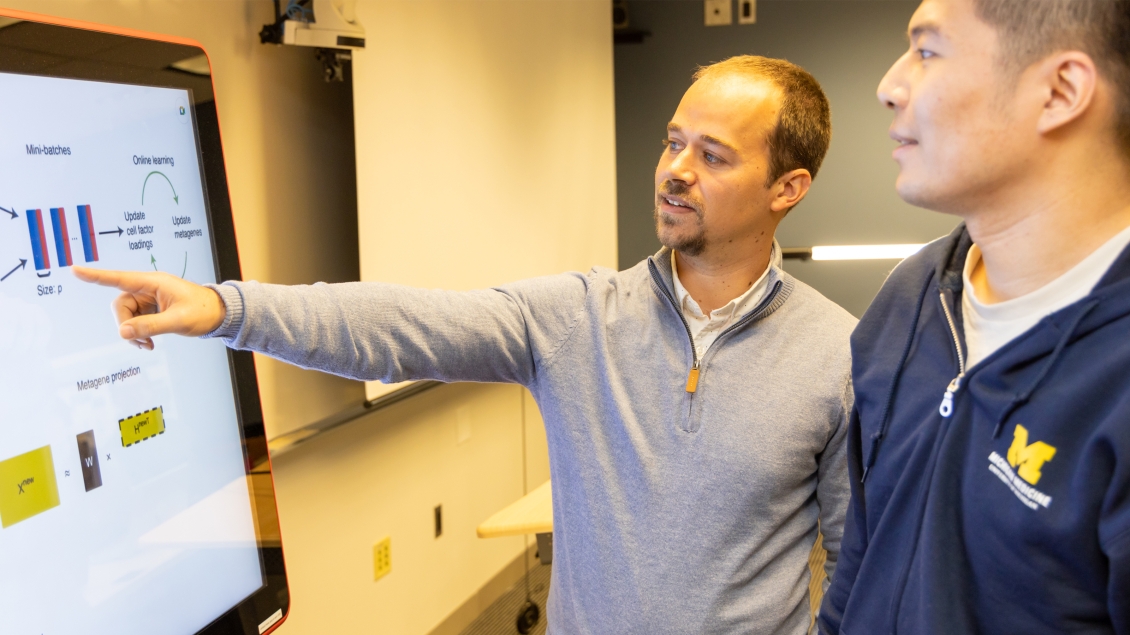
An all-encompassing, highly interdisciplinary field
Program Overview
The University of Michigan Bioinformatics Graduate Program builds a strong foundation for Master’s and PhD students through comprehensive course offering, research training and mentoring.
Students in our program take courses in advanced math, modeling, statistics, computer programming, machine learning, informatics, comprehensive courses in introductory biology, genomics, proteomics, clinical informatics, environmental health, and much more. They are encouraged to take advantage of the enormous research and teaching resources across U-M.
Our students have an abundance of research opportunities in many subject areas under the mentorship of our 130 affiliated faculty members of the Center for Computational Medicine and Bioinformatics ( CCMB ). These faculty are from U-M Medical School, College of Engineering, College of Literature, Arts and Sciences, School of Public Health, School of Nursing, and School of Information.
In 2023, the Bioinformatics Graduate Program maintains a student body of 87 PhD students, and over 120 Master's students. They are mentored by the 44 DCMB faculty and the 130 CCMB faculty. Faculty members with biological and more quantitative expertise are both well represented.
The Bioinformatics Graduate Program was created in 1999 and is housed in the Department of Computational Medicine and Bioinformatics ( DCMB ).
Apply through our PIBS application
Bioinformatics offers an extensive range of research opportunities, from applications for clinical medical problems and specific diseases to computational work on synthetic biological systems. There are very active groups in:
- Artificial Intelligence (AI) and machine learning
- Genomics, regulatory genomics and epigenomics
- Protein structure, proteomics, and alternative splicing
- Multi-“omics” integrative bioinformatics
- Systems biology and networks analysis
- Biomedical data science, translational bioinformatics and pharmacogenomics
- Methodological development in computational biology
- Applications to complex genetic diseases
- 4D Nucleome
- Single Cell Analysis
- Signal/Image Processing and Machine Learning
Bioinformatics has had NIH supported training grants since 2005. Our students are eligible for a wide range of other training grant support related to more specific areas of research, such as genomics or cancer proteomics.
Students are required to take courses in each of the following areas:
- Introductory Bioinformatics
- Computing & Informatics
- Probability & Statistics
- Molecular Biology
- Bioinformatics 602 (Journal Club) taken once in the first year.
- Bioinformatics 603 (Journal Club) taken once; students present papers for discussion
- Research Responsibility and Ethics course (PIBS 503)
- One Advanced Bioinformatics course offered or cross-listed by the Bioinformatics Graduate Program
- One additional Advanced Bioinformatics course in any program
Details about courses available in each of these areas can be found on the department website . Courses may be offered by Bioinformatics or other units.
Attendance at weekly seminars is also expected. Offered seminars include a weekly series of invited guest speakers, “Tools & Tech” presentations that highlight a tool or technology, either under development or in current use, and BISTRO, a lively seminar where students present their ongoing research.
Preliminary Examination
Students take a preliminary exam in their second year, usually at the end of the 3rd or 4th term. The preliminary exam should show both creativity and skill, and should not be identical to the student’s thesis work. The aims of the examination are two-fold. The first aim is to demonstrate that students have developed the ability to analyze a scientific problem and develop appropriate strategies to carry out a research plan. The second aim is to demonstrate that students have enough Bioinformatics knowledge needed to carry out their thesis research. Students sometimes develop their prelim proposals into a paper and/or a thesis chapter later.
Teaching Requirement
Teaching, in Bioinformatics or in other departments, is encouraged and expected for at least one term from most Bioinformatics students. Individual circumstances such as English language ability, interest, and funding situation of the mentor are considered.
Expected Length of Program
The expected time to PhD graduation is 5 to 6 years.
Approximately 8-15 new students join the PhD program each year. Each term, contact between faculty and students is encouraged through research events & social gatherings. Given the interdisciplinary nature of the program, students are encouraged to develop and pursue their own research interests. In an effort to support students’ academic growth, the department and other units (such as Rackham Graduate School) offer funding to assist students with conference participation or workshop attendance.
Approximately 50% of program alumni choose academia, while others with go into industry with many working at biotechnology companies. Aware of this, current students are provided opportunities to meet with guest seminar speakers or visitors from industry. In addition, outside internships are encouraged if related to a student’s research as they have proven to be valuable experiences.
The program supports student-led initiatives that are focused on building community such as student organized social activities, a pre-Thanksgiving dinner, and group run in the local marathon. Separately, Bioinformatics coordinates an annual off-site weekend retreat and an annual picnic.
DCMB welcomes and supports several student organizations :
- The Bioinformatics Graduate Student Association (BGSA)
- The Bioinformatics Black Student Union (BBSU)
- The Data Analysis Networking Group (DANG!)
- DCMB Girls Who Code Club
Alumni from the Bioinformatics Graduate Program pursue successful careers in academia, biotechnology and biomedical research in industry and government. Most of them are employed immediately after graduation.
Learn more about the Department of Computational Medicine and Bioinformatics.
We transform lives through bold discovery, compassionate care and innovative education.
- Diversity, Equity & Inclusion
- Find a Doctor
- Conditions & Treatments
- Patient & Visitor Guide
- Patient Portal
- Clinical Trials
- Research Labs
- Research Centers
- Cores and Resources
- Programs & Admissions
- Our Community
- Departments, Centers & Offices
- About the Medical School
Global Footer Secondary Navigation

IMAGES
VIDEO
COMMENTS
Compare the top bioinformatics graduate schools in the U.S. Find the top graduate schools offering masters in bioinformatics degrees and PhD in bioinformatics programs.
Feb 29, 2024 · Below is the list of 100 best universities for Bioinformatics and Computational biology in the World ranked based on their research performance: a graph of 122M citations received by 3.3M academic papers made by these universities was used to calculate ratings and create the top.
Genetics and genomics courses examine heredity and DNA and, in bioinformatics, computer programs are used to analyze this genetic information. These are the best science schools for genetics ...
The Department of Biomedical Informatics offers a PhD in Biomedical Informatics in the areas of Artificial Intelligence in Medicine (AIM) and Bioinformatics and Integrative Genomics (BIG).
May 29, 2022 · If you’re wondering how to begin pursuing a bioinformatics PhD, this guide will cover 10 of the best academic programs available, as well as the funding opportunities and admissions process of each.
Compare the top bioinformatics graduate schools in California. Find top graduate schools offering masters in bioinformatics degrees in California and PhD in bioinformatics programs in California.
The Bioinformatics and Integrative Genomics (BIG) PhD track is an interdisciplinary program that trains future leaders in the field of bioinformatics and genomics.
Compare the GRE score requirements, admission details, credit requirements and tuition for the Master's Program, from 174 universities offering Graduate PHD/Doctoral Programs in Bioinformatics, BioMedical Informatics.
The PhD in Bioinformatics program offers unique interdisciplinary training for graduate students in the science, engineering, medicine, and ethics of twenty-first-century cell biology jointly through the Faculty of Computing & Data Sciences.
The University of Michigan Bioinformatics Graduate Program builds a strong foundation for Master’s and PhD students through comprehensive course offering, research training and mentoring.